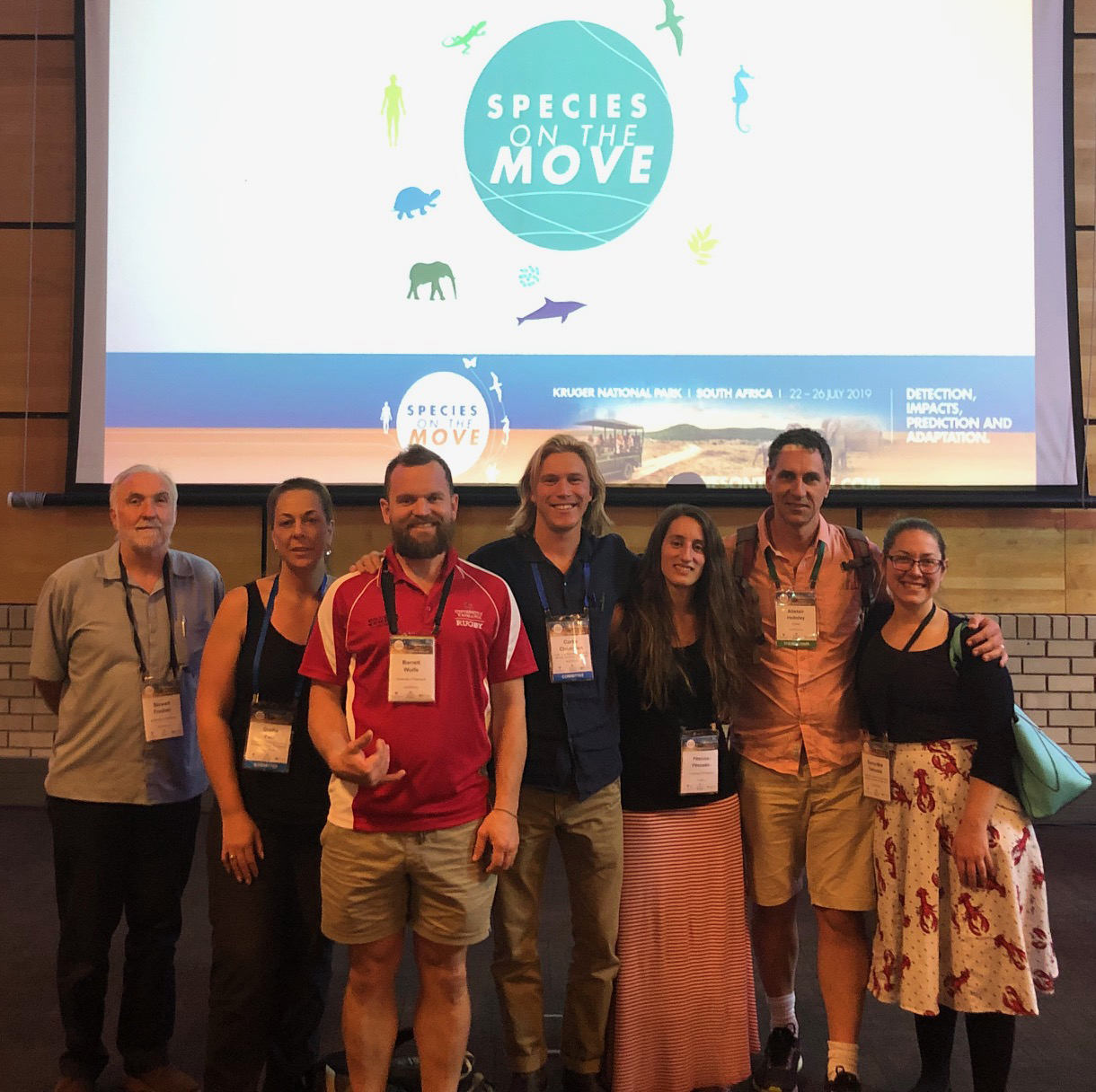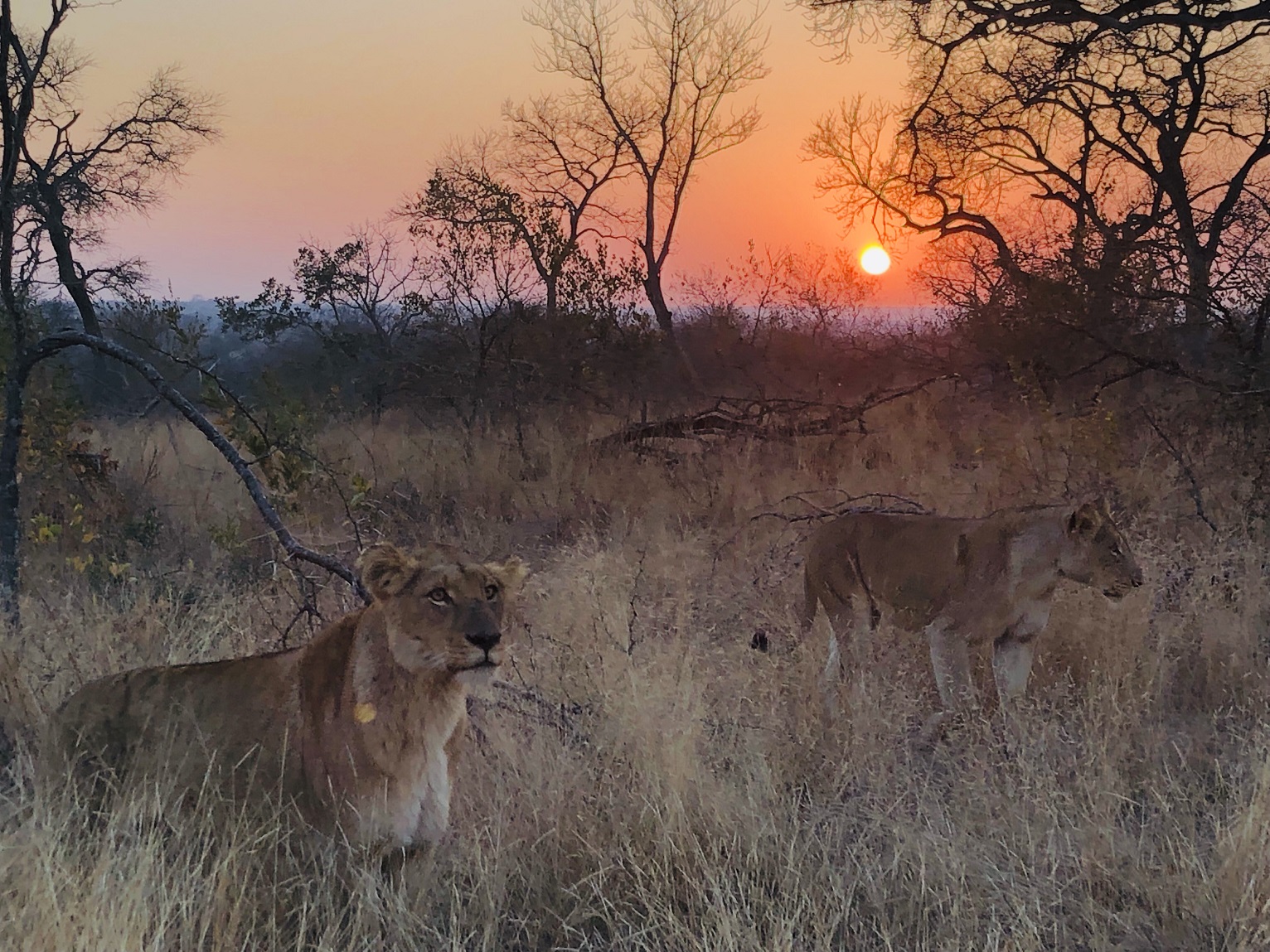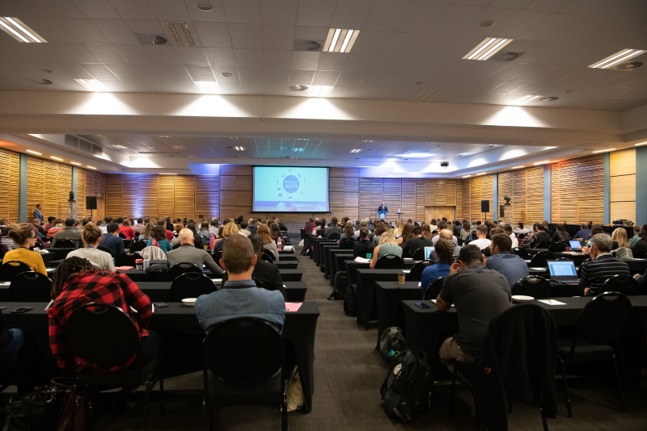
IMAS scientists were among 11 University of Tasmania researchers who braved hungry mammals last month to better understand how and where species are migrating in response to climate change.
They were among 250 delegates at the second Species on the Move Conference, co-convened by IMAS Professor Gretta Pecl. The conference was held next to Kruger National Park in northern South Africa.
"It was so inspiring and motivational to be at a conference on the future of the world’s biodiversity while immersed in one of the amazing national parks in the world," Professor Pecl said.
 "I would arrive back at my bungalow to warthogs on the front door step, there were hippos in the river next to where we had breakfast and monkeys were everywhere."
"I would arrive back at my bungalow to warthogs on the front door step, there were hippos in the river next to where we had breakfast and monkeys were everywhere."
Professor Pecl started the Species on the Move Conference Series in Hobart in 2016 to create a research community on the critical issue of animal migration.
"It is amazing how quickly we have generated a following among the world’s best researchers in this area, but at the same time, it has really been instrumental in supporting early career researchers," Professor Pecl said.
IMAS Research Fellow Dr John Keane shared his research on the invasion of the Longspined Sea Urchin to the cooler waters of Tasmania.
"Before 1978 there were none. Now there are over 18 million Longspined Sea Urchins changing the ecology of the reef off Tasmania's East Coast," Dr Keane said.
"Fifteen per cent of the reef has been transformed from a diverse kelp ecosystem to almost lifeless barren rock, and that has a big impact on native species and human activities."
 Professor Pecl said we are unprepared for the multitude of impacts from species migration.
Professor Pecl said we are unprepared for the multitude of impacts from species migration.
"These changes are happening much faster than we first predicted, like much of climate change."
"Climate change is also affecting the distribution of human and animal diseases, so it is essential that we look at all diversity on earth, and how that is shifting."
More detail is provided in Professor Pecl's paper Autonomous adaptation to climate-driven change in marine biodiversity in a global marine hotspot, published in the journal Ambio in April.